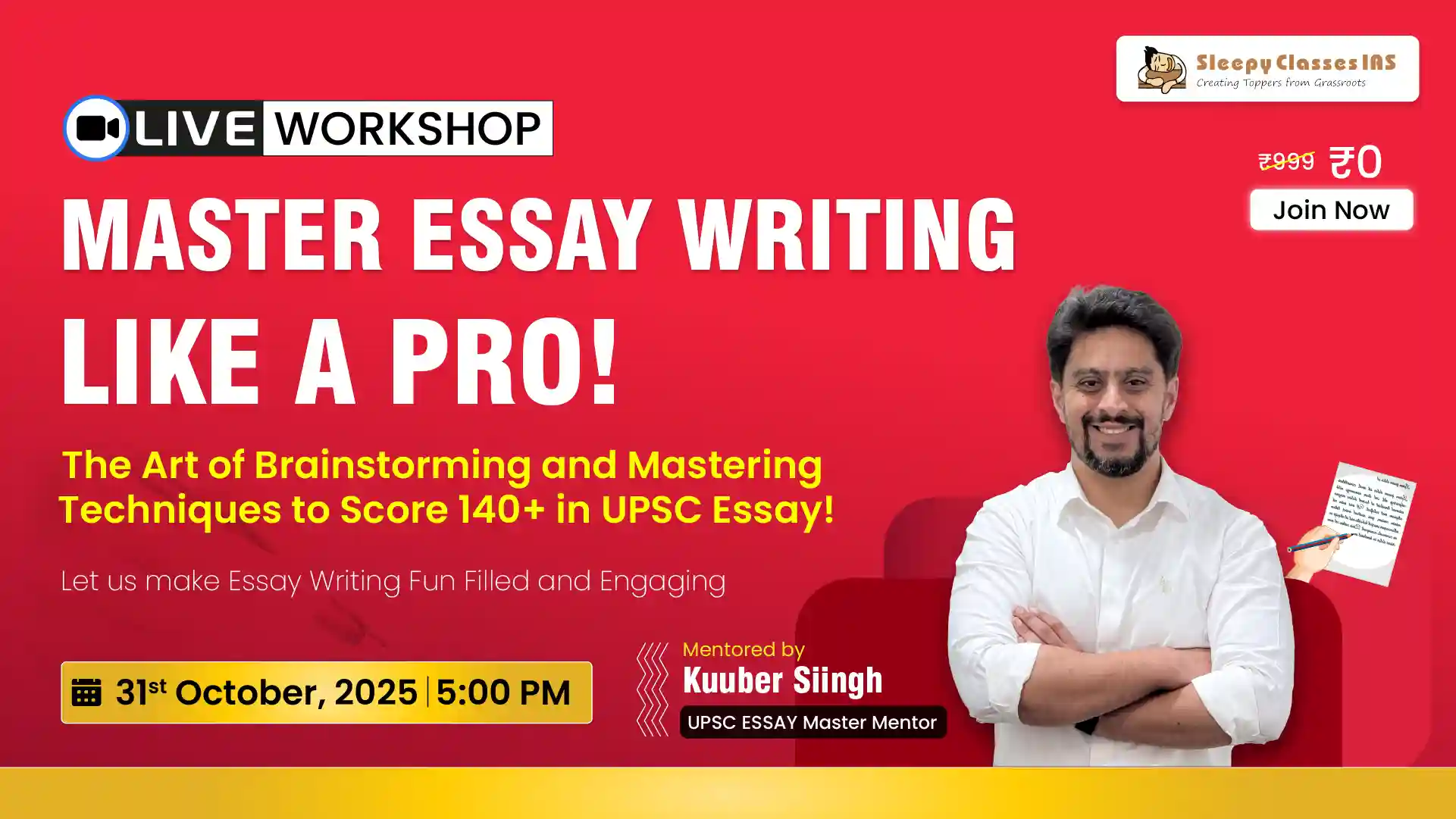Question
Q64. In India. which one of the following Constitutional Amendments was widely believed to be enacted to overcome the judicial interpretations of the Fundamental Rights?
- 1st Amendment
- 42nd Amendment
- 44th Amendment
- 86th Amendment
Answer: 1
Detailed Explanation
![[Solved] In India. which one of the following Constitutional Amendments was widely believed to be enacted to overcome the judicial interpretations of the Fundamental Rights? 1st Amendment 42nd Amendment 44th Amendment 86th Amendment 1 word image 40114 42 1](https://sleepyclasses.com/wp-content/uploads/2025/05/word-image-40114-42-1.png)
![[Solved] In India. which one of the following Constitutional Amendments was widely believed to be enacted to overcome the judicial interpretations of the Fundamental Rights? 1st Amendment 42nd Amendment 44th Amendment 86th Amendment 2 word image 40114 43 1](https://sleepyclasses.com/wp-content/uploads/2025/05/word-image-40114-43-1.png)
42nd Amendment Act 1976
New Directives Under part IV
· Article 39 f children are given opportunities and facilities to develop in a healthy manner and in conditions of freedom and dignity.
· Article 39A -Equal Justice and Free legal Aid
· Article 43 A – Participation of workers in management of industries
· Article 48 A – Protection of environment and forest and wildlife
· Inserted Part IV A – Article 51A – 10 Fundamental Duties
· Article 74(1) – Explicitly state that President shall act on the aid and advise of C.O.M
· Freezing the allocation of seats in Lok Sabha and Rajya Sabha as per 1971 census till 2000.
· Duration of Lok Sabha and Assembly changed from 5 years to 6 years.
· Provision related to Quorum removed from Article 100 and Article 189.
· New Article 131 A – Supreme Court with exclusive jurisdiction as regards determination of the constitutional validity of Central laws.
· Article 144A – Minimum size of bench in such a hearing is 7 and 2/3rd judges must agree on constitutional invalidity.
· High Court power to issue writs under Article 226 restricted.
· Minimum size of bench in such a hearing is 5 and 2/3rd judges must agree on constitutional invalidity.
· Article 311 – No second opportunity to civil servant to make representation at awarding stage.
· Article 312 – Creation of All India Judicial Service by a parliamentary law
· Article 323A and 323 B- Tribunals
· Article 352 –Emergency can be declared in whole as well as part of country.
· Article 356 – Emergency can be renewed for one year at a time
· Article 368 – No Constitutional Amendment shall be called in question in any court on any ground
5 entries shifted from state list to concurrent list
· Administration of justice, constitution and organisation of all Courts except the Supreme Court and the High Courts.
· Education
· Weights and measures except establishment of standards
· Forests
· Protection of wild animals and birds
44th Constitutional Amendment Act
· Right to property removed from fundamental rights (Article 19 and 31) and moved it to Article 300A.
· New DPSP (Article 38)
“State shall strive to minimise inequalities in income and endeavour to eliminate inequalities in status, facilities and opportunities”
· Restored jurisdiction of Supreme Court to enquire into disputes regarding President/Vice President/PM/Lok Sabha speaker elections.
· Empowered the President to send back once the advice of cabinet for reconsideration.
· Terms of Lok Sabha and Legislative assembly were restored to 5 years. (83,172)
· Omitted the reference to British House of Commons in parliamentary privileges (105 and 194)
· Distinguished jurists not eligible for appointment as High Court Judges
· Writ jurisdiction of High Courts restored (Art 226)
· Deleted the provision making satisfaction of President and Governor final in issuing ordinances.
· Restored power of superintendence of High Courts over tribunals.
Changes to Emergency : (National Emergency)
· Internal Disturbance replaced by armed rebellion.
· No proclamation of National Emergency without written recommendation of Union Cabinet.
· Approval of N.E – within 1 month of proclamation.
· Approval by special majority- (Article 368 vaali)
· Approval needs to be renewed every 6 months.
· Lok Sabha through simple majority can pass resolution to revoke proclamation.
Changes to Emergency: (National Emergency)
· Article 19 will be suspended only in case of emergency by external aggression or war.
· Article 20 and 21 can never be suspended during National Emergency
Changes to Emergency: (State Emergency Art 356)
· Approval of Six months at a time.
Changes to Emergency: (Financial Emergency )
· Proclamation may be revoked or varied by subsequent proclamation.
86th Constitutional Amendment Act
· Article 21-A – Elementary education a fundamental right
· Article 45 – State shall endeavour to provide early childhood care and education for all children until they complete the age of six years
· Article 51 –A – It shall be the duty of every citizen of India who is a parent or guardian to provide opportunities for education to his child or ward between the age of six and fourteen years





